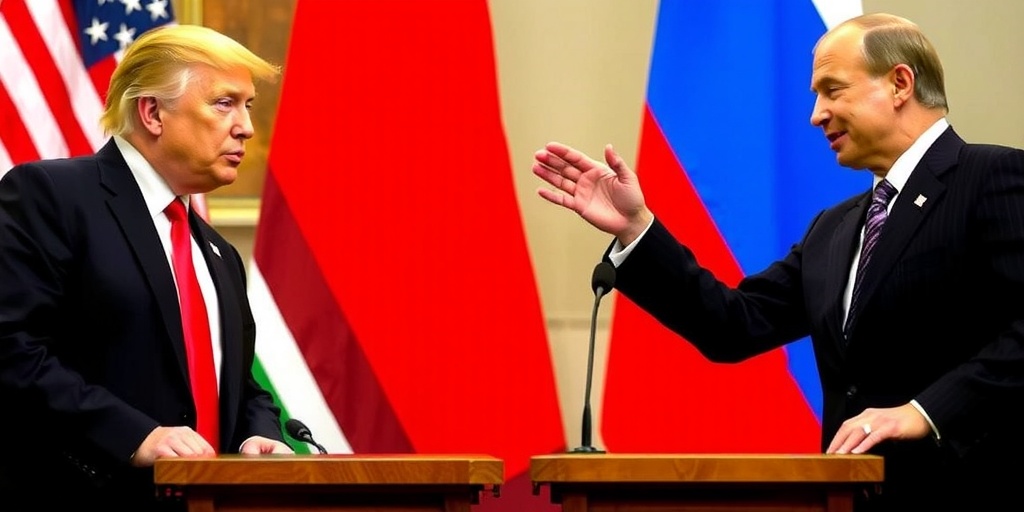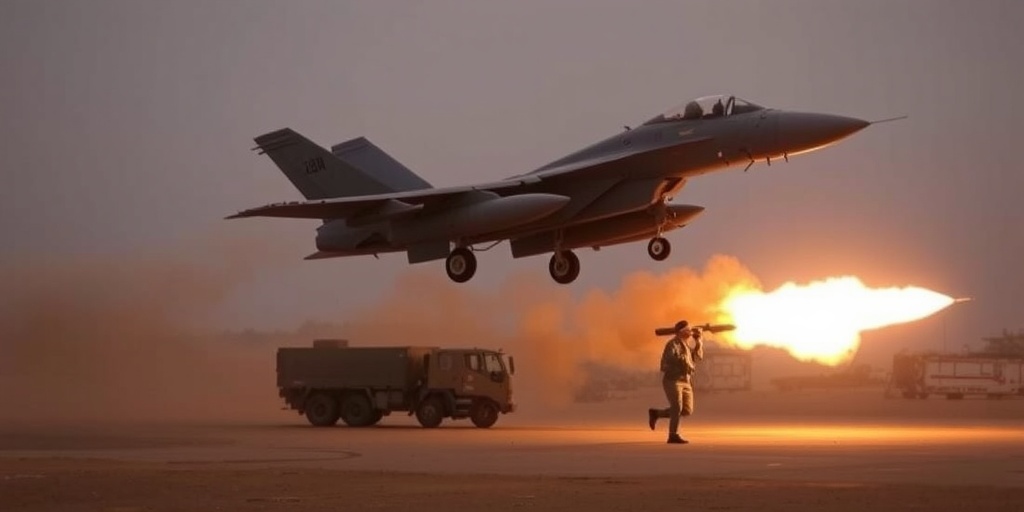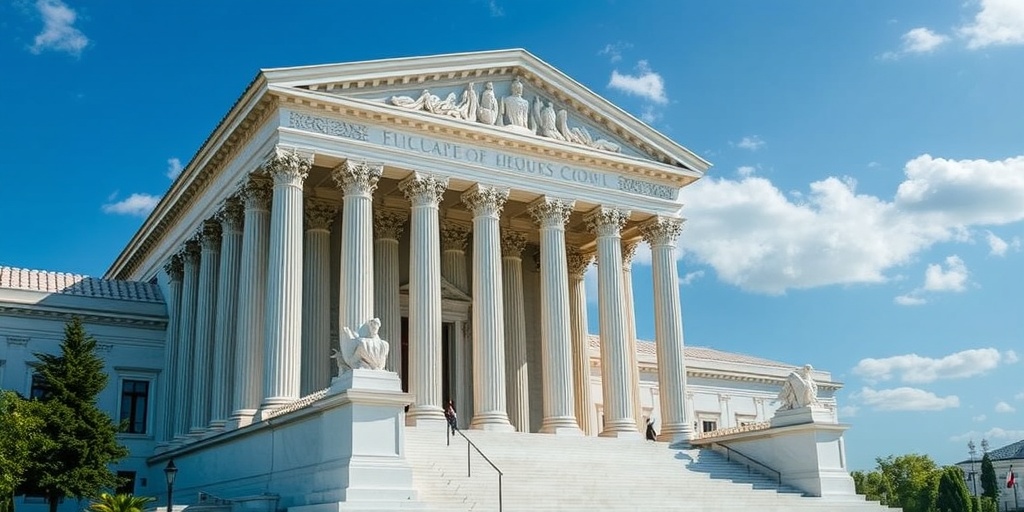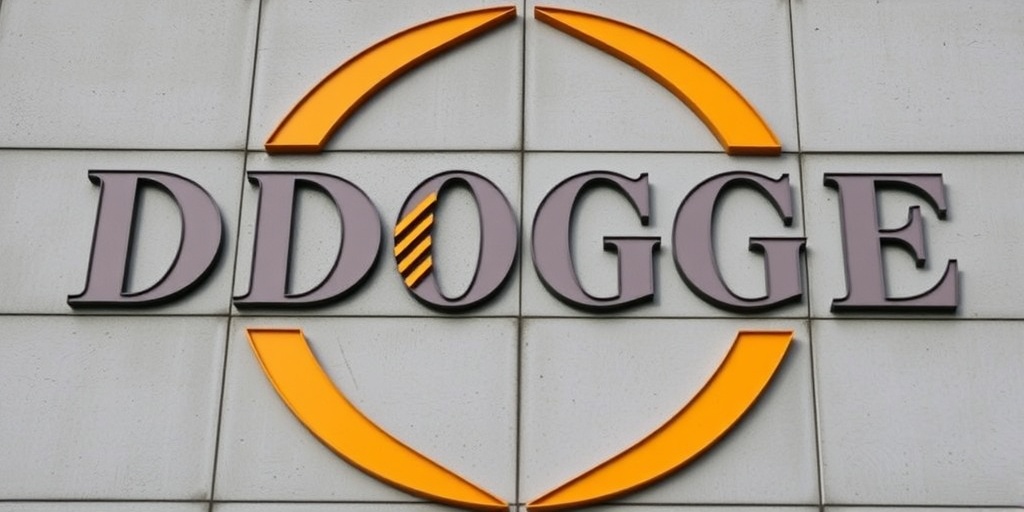Now Reading: Trump’s Shift to Putin Disrupts Decades of U.S. Policy
-
01
Trump’s Shift to Putin Disrupts Decades of U.S. Policy
Trump’s Shift to Putin Disrupts Decades of U.S. Policy

Title: Trump’s New Foreign Policy Pivot: A Shift in American Attitude Toward Russia Amidst Ongoing Ukraine Crisis
For over ten years, the geopolitical landscape has been dominated by what many refer to as a new cold war between the West and the East. Yet, with Donald Trump returning to the presidency, there are emerging indications that the United States could be pivoting away from its traditional alliances. The latest developments in American foreign policy have raised eyebrows and sparked discussions about a significant shift in approach towards Russia, particularly in the context of the ongoing conflict in Ukraine.
As American and Russian negotiators convened for the first time since the onset of Russia’s full-scale invasion of Ukraine nearly three years ago, Trump has hinted at a willingness to reassess America’s alliances. Trump’s comments downplay Russia’s role in the invasion, suggesting instead that Ukraine bears responsibility. He claimed, “You should have never started it,” referencing Ukrainian leaders, accusing them of failing to negotiate and thereby forgoing a potentially peaceful resolution.
Speaking from his Mar-a-Lago estate in Florida, Trump expressed dissatisfaction with the current Ukrainian leadership, stating that a war of this magnitude should have never occurred. Notably, Trump refrained from condemning Russian President Vladimir Putin or Russia itself, which has been a consistent aggressor since its first incursion into Ukraine in 2014. The former president’s rhetoric marks a stark departure from historical U.S. foreign policy, which has long viewed Moscow with skepticism and concern.
Experts highlight that Trump appears to be executing one of the most significant pivots in American foreign policy in decades. His approach contrasts sharply with the past 80 years of American leadership, which has typically viewed the Soviet Union and its successor, Russia, as adversaries. Rather, Trump indicates a willingness to foster a collaborative relationship with Putin.
During his statements, Trump signified a clear shift away from isolating Russia for its aggressive actions, advocating instead for re-engagement. This sentiment signals a remarkable transition in the American stance towards Russia, where Trump’s administration is actively seeking to redefine alliances. His interactions with Russian officials suggest a future where the U.S. could potentially overlook Moscow’s past transgressions in favor of pursuing what he describes as “incredible opportunities” for partnership once the Ukrainian conflict is resolved.
Critics of Trump’s newfound stance emphasize the ramifications of legitimizing Russian aggression, which undermines decades of U.S. policy to resist Soviet territorial expansion. Kori Schake, a prominent foreign policy analyst, lamented that this represents a disgraceful reversal of long-standing American values, specifically warning against legitimizing aggressive territorial claims.
Furthermore, Trump’s foreign policy team frames this pivot as a necessary correction to what they perceive as years of misguided engagements, emphasizing the high costs of defending Europe amidst other pressing national interests. Trump’s allies argue that accommodating Russia could allow the U.S. to reduce its military footprint in Europe and redirect resources towards countering China, which they view as a greater threat.
Recent statements by senior officials within Trump’s administration reflect this recalibrated approach. Vice President JD Vance has openly criticized European allies, claiming threats from within are more concerning than external ones posed by Russia. Meanwhile, Secretary of State Marco Rubio has engaged with Russian Foreign Minister Sergei Lavrov, discussing potential partnerships unconnected to the ongoing conflict.
Critics of Trump’s approach caution that his praise for Putin reflects dangerous naivety. Trump has consistently expressed admiration for Putin, perceiving him as a strong leader unlike traditional U.S. allies. This perception not only further alienates European partners but also contributes to an international atmosphere rife with uncertainty.
As discussions continue regarding the future of Ukraine, Trump has faced scrutiny for vague claims about resolving the conflict swiftly. Influential voices in security circles express skepticism regarding Trump’s capacity to facilitate genuine negotiations with Russia. Experts advocate that negotiations with Moscow require a level of distrust due to their historical propensity for inciting conflict and refusing adherence to agreements.
Trump has articulated his dismay over the toll of war in Ukraine while failing to explicitly attribute this suffering to Russia. His comments raise alarm bells across Europe, revealing a potential shift in loyalty away from long-standing alliances. Analysts contend that Trump’s position not only undermines the principles upon which post-World War II order was built but also provides comfort to the Kremlin.
As the political landscape evolves and negotiations unfold, the implications of Trump’s foreign policy pivot will continue to reverberate globally. The fraying ties with traditional allies alongside burgeoning relationships with Russia depict a complicated and concerning future that warrants close examination as it slowly unfolds.
Stay Informed With the Latest & Most Important News
Previous Post
Next Post
-
 01New technology breakthrough has everyone talking right now
01New technology breakthrough has everyone talking right now -
 02Unbelievable life hack everyone needs to try today
02Unbelievable life hack everyone needs to try today -
 03Fascinating discovery found buried deep beneath the ocean
03Fascinating discovery found buried deep beneath the ocean -
 04Man invents genius device that solves everyday problems
04Man invents genius device that solves everyday problems -
 05Shocking discovery that changes what we know forever
05Shocking discovery that changes what we know forever -
 06Internet goes wild over celebrity’s unexpected fashion choice
06Internet goes wild over celebrity’s unexpected fashion choice -
 07Rare animal sighting stuns scientists and wildlife lovers
07Rare animal sighting stuns scientists and wildlife lovers





















